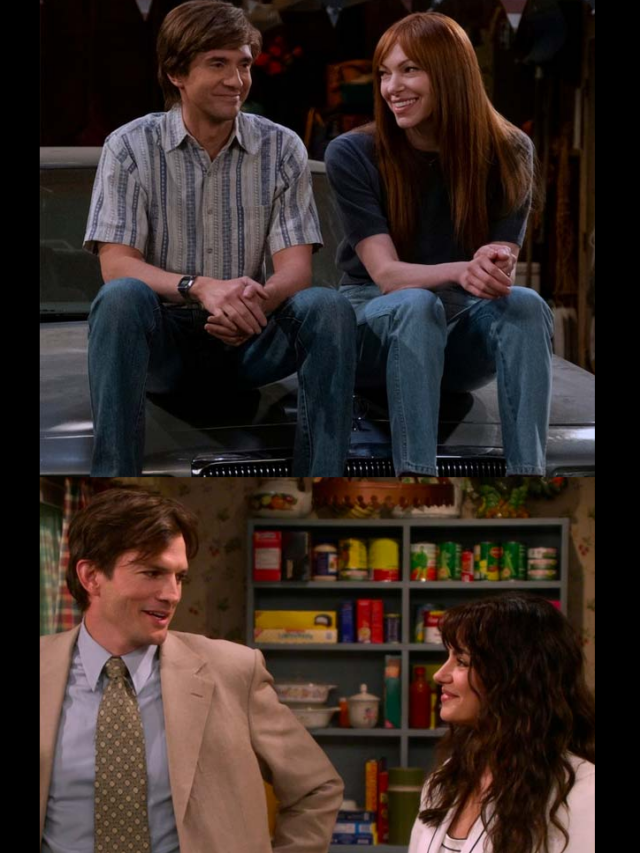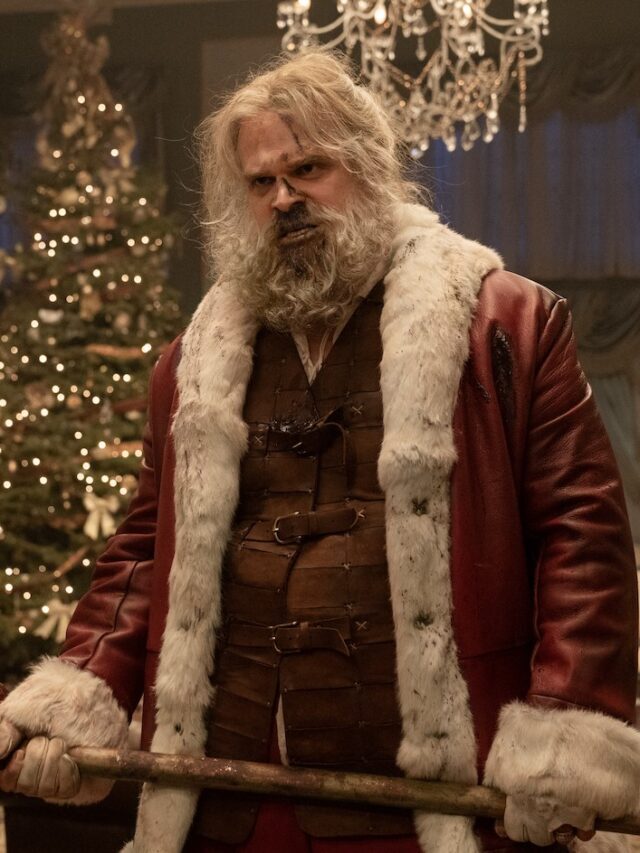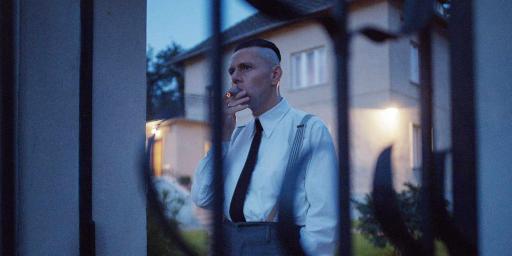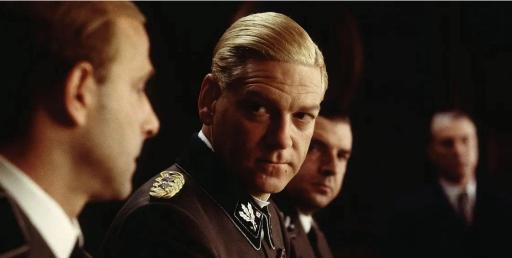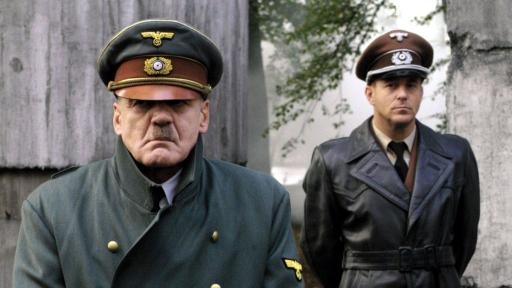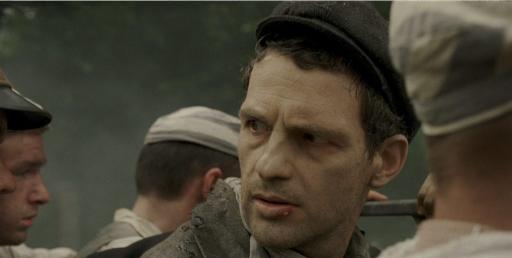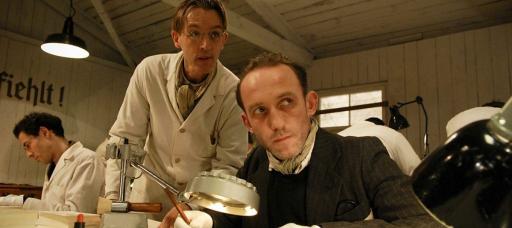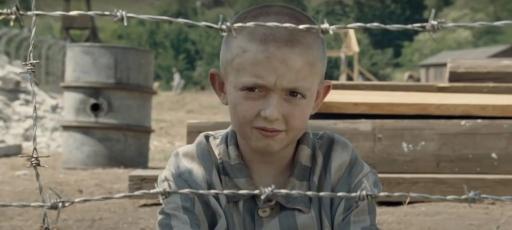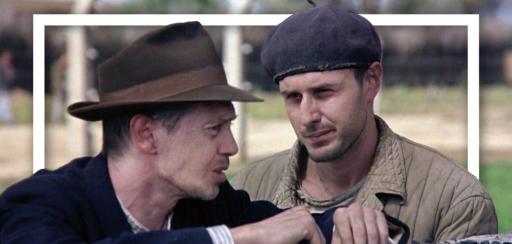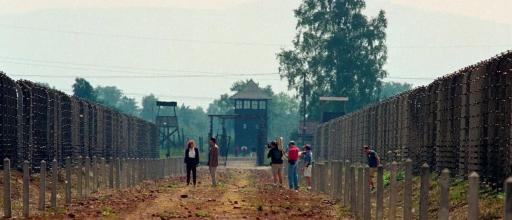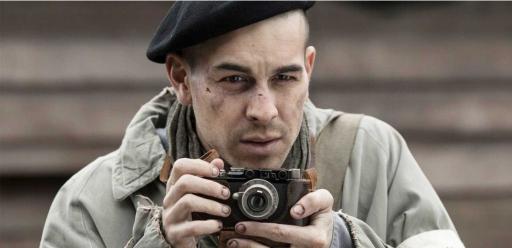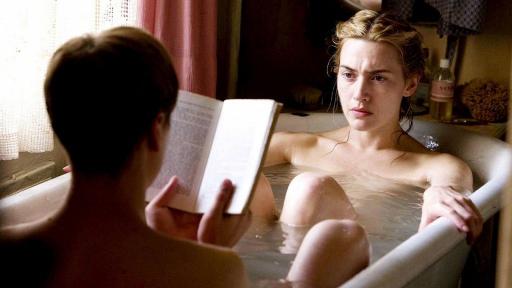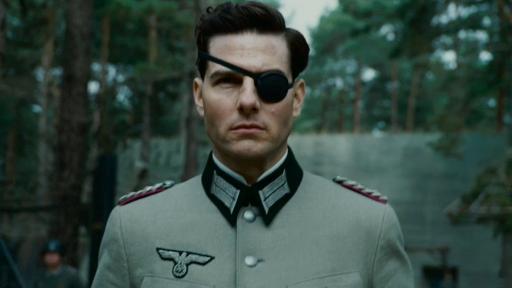‘The Zone of Interest’ by Jonathan Glazer is a moving historical drama that takes its cues from Martin Amis’ 2014 book. This international co-production transports spectators to the lives of Auschwitz commandant Rudolf Höss and his wife by skillfully fusing the skills of the United States, the United Kingdom, and Poland. Their quest of an ideal existence is gently explored in the film, set against the harsh realities of the concentration camp. In both leading parts, Christian Friedel and Sandra Hüller navigate the moral issues of their day with powerful performances. Glazer portrays the essence of morality, love, and resiliency against the menacing backdrop of history in this powerful cinematic voyage. These further films are similar to “The Zone of Interest.”
Table Of Content
Conspiracy (2001)
“The Zone of Interest” and Frank Pierson’s film “Conspiracy” have a similar thematic resonance. The film, which stars Kenneth Branagh and Stanley Tucci, is a terrifying historical drama that explores the Wannsee Conference, when senior Nazi officials came up with the idea for the Holocaust’s “Final Solution.” Conspiracy, like “The Zone of Interest,” examines the moral ambiguities and conundrums that individuals planning horrific deeds during World War II had to deal with. While “The Zone of Interest” focuses on Auschwitz, “Conspiracy” emphasises the unsettling cooperation and decision-making process among important Nazi individuals and provides a terrifying look inside the bureaucratic apparatus that concealed the Holocaust.
Downfall (2004)
Oliver Hirschbiegel, the director of “Downfall,” delves into the cramped confines of Hitler’s bunker in the final days of World War II. Hitler’s secretary Traudl Junge is portrayed by Alexandra Maria Lara, who offers a close-up view of the regime’s collapse. This is a similar theme to “The Zone of Interest,” which examines the complex moral issues surrounding Auschwitz. While “Downfall” explores the core of political authority, “The Zone of Interest” works through moral conundrums in a concentration camp. Despite having different settings, both films share the goal of shedding light on the human condition in the midst of historical upheaval. They do this by showing characters who must reconcile moral dilemmas with the threat of approaching doom.
Son of Saul (2015)
The film “Son of Saul,” which was directed by László Nemes, follows Saul Ausländer, a Jewish prisoner assigned to labour in the crematoriums, as he provides a visceral and terrifying depiction of life in Auschwitz. The film portrays the cruelty and dehumanisation of the Holocaust through an intense and limited focus. Similar to this, “The Zone of Interest” delves deeply into the lives of those who lived in Auschwitz to examine the moral difficulties there. With a focus on the efforts of individuals to maintain their humanity and dignity in the face of the Holocaust’s crimes, both films offer an uncompromising look at the human experience in the most horrific periods of history.
The Counterfeiters (2007)
By straying from the backdrop of the concentration camps, Stefan Ruzowitzky’s film “The Counterfeiters” presents a distinctive viewpoint on World War II. The movie, which stars Karl Markovics and August Diehl, tells the authentic tale of Operation Bernhard, in which the Nazis recruited intelligent convicts to forge Allied money. The moral conundrums that persons who must cooperate for survival encounter are the main subject of “The Counterfeiters,” in contrast to “The Zone of Interest.” But there is a common theme running through all films: they explore the human cost and moral conundrums that arise while dealing with dire situations during one of the darkest eras in history. The movie “The Counterfeiters” illuminates the lesser-known facets of wartime survival techniques.
The Boy in the Striped Pyjamas (2008)
“The Boy in the Striped Pyjamas” by Mark Herman deftly crafts a story against the backdrop of World War II. In the film, Asa Butterfield plays eight-year-old Bruno, who unintentionally becomes friends with Jack Scanlon’s character, Shmuel, a Jewish youngster in a nearby concentration camp. The film evokes strong emotions as it deftly navigates the collision between innocence and the horrific facts of the Holocaust. Given that both films depict Holocaust tragedies, viewers drawn to the complexity of “The Zone of Interest” will find relevance in this picture as well.
The Grey Zone (2001)
Fans of “The Zone of Interest” will find “The Grey Zone,” directed by Tim Blake Nelson, to be an eerie examination of moral quandaries in Auschwitz and an engaging film to watch. The movie, which stars Steve Buscemi, Harvey Keitel, and David Arquette, chronicles the moral dilemmas faced by Jewish Sonderkommandos compelled to aid in the extermination process. An intense and uncompromising depiction of human survival among the horrors of the Holocaust is given by the films’ raw intensity and moral dilemmas. “The Grey Zone” transports viewers to the ethically dubious landscape, producing a singular cinematic encounter that echoes with the potent narrative undertones of “The Zone of Interest.”
The Last Days (1998)
James Moll’s moving documentary “The Last Days” vividly depicts the survival tales of five Hungarian Jews in the latter stages of World War II. The film offers an unwavering representation of the resiliency, perseverance, and enduring spirit of those who experienced the Holocaust via gripping human narratives. On the other hand, “The Zone of Interest” delves into the moral ambiguities surrounding Auschwitz and examines the human ability to persevere in the face of historical gloom. Despite having different formats and points of emphasis, both stories emphasise how important it is for individual tales to preserve the collective memory of humanity’s most trying times.
The Photographer of Mauthausen (2018)
“The Photographer of Mauthausen,” which was directed by Mar Targarona, tells the authentic tale of Francisco Boix, a Spanish prisoner who was held in the Mauthausen concentration camp during World War II. Boix becomes a crucial witness by risking his life to smuggle out photographic proof of Nazi atrocities. The importance of visual documentation for justice and remembrance is shown by this historical play. In parallel, “The Zone of Interest” investigates the moral ambiguities surrounding Auschwitz and the human spirit’s ability to persevere in the face of historical gloom. Both films powerfully show the moral decisions people make in dire situations, highlighting the significance of testifying against crimes and the long-lasting effects of these decisions on the human condition.
The Reader (2008)
The story of Stephen Daldry’s film “The Reader” develops as a moving examination of shame, remorse, and the complexity of morality in post-World War II Germany. Kate Winslet plays the former SS guard Hanna Schmitz, whose friendship with a young guy serves as a prism through which the movie looks at the aftermath of wartime deeds. In a similar vein, “The Zone of Interest” delves into the criminals’ mentalities and the moral terrain inside the camp. While “The Reader” focuses on interpersonal bonds formed in the wake of conflict, “The Zone of Interest” examines the intricacies of the concentration camp, offering a collective perspective on the long-lasting effects of history’s darkest hours.
Valkyrie (2008)
The Zone of Interest and Bryan Singer’s “Valkyrie” both explore moral ambiguities in the midst of turbulent historical times, which is a theme shared by both films. The movie, which stars Tom Cruise, tells the real tale of Colonel Claus von Stauffenberg’s failed attempt to kill Adolf Hitler in World War II. The goal of the scheme is to topple the Nazi government through the Valkyrie operation. Both films discuss the moral conundrums that those caught up in the most sinister periods of history must face. The film Valkyrie delves into the internal struggle against the horrors committed by the Nazi state, whereas “The Zone of Interest” concentrates on Auschwitz.
Our Team DCS includes 5 different writers proficient in English and research based Content Writing. We allow them and encourage them to follow the Entertainment news all day long. Our posts, listicles and even the exclusives are a result of their hard work.

